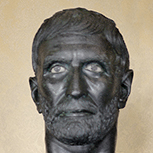The ROMAN CIVILIZATION
IMAGES OF THE ROMAN CIVILIZATION
THE ROMAN REPUBLIC
The End of the Roman Republic
Tiberius and Gaius Gracchus
Gaius Marius and sulla
Pompey, Crassus Caesar
Octavian, Antony and Lepidus
The Crises of the Roman Republic refers to an extended period of political instability and social unrest that culminated in the demise of the Roman Republic and the advent of the Roman Empire, from about 134 BC to 44 BC.
The long time of the Crisis was because "Rome teetered between normality and crisis" for many decades.
Likewise, the causes and attributes of the crises changed throughout the decades, including the forms of slavery, wars internal and external, land reform, the expansion of Roman citizenship, and even the changing composition of the Roman army, and the rise of powerful people and generals
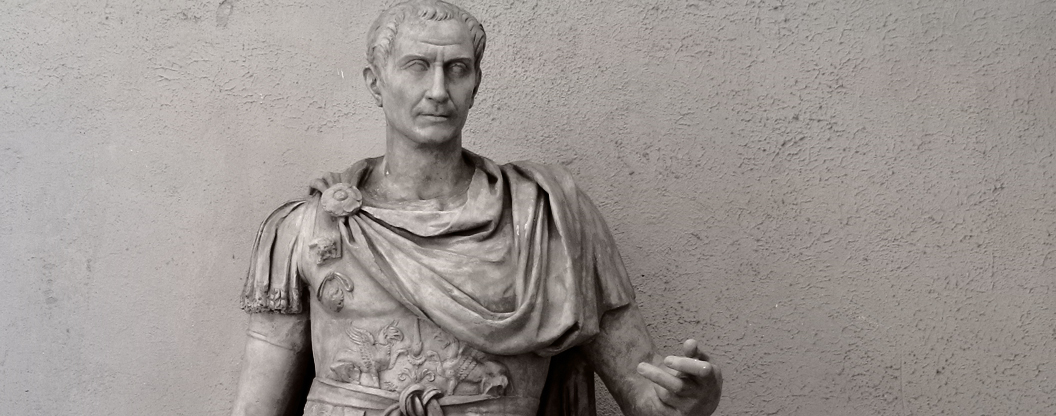
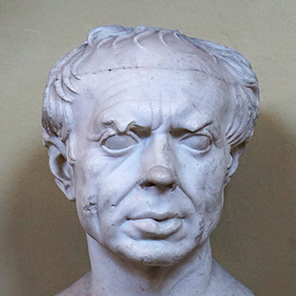
Gaius Marius Roman general
Marius was a successful Roman general and military reformer, but also known as a harsh, ambitious man harboring contempt for the nobility.The struggle between Marius and Sulla led to the the destruction of the Republican form of government and thus to the establishment of the principate system of the Empire.
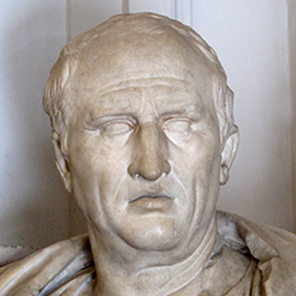
Marcus Tullius Cicero
Cicero was an accomplished orator and successful lawyer,a Roman philosopher, politician, lawyer, orator, political theorist, consul and constitutionalist During the latter half of the 1st century BC marked by civil wars and the dictatorship of Gaius Julius Caesar, Cicero championed a return to the traditional republican government.
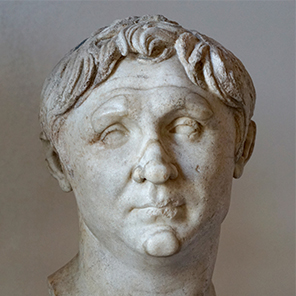
The Pompey was one of the main Roman leaders during the final decades of the Roman Republic. Pompey's immense success as a general while still very young , In mid-60 BC, Pompey joined Marcus Licinius Crassus and Gaius Julius Caesar in the unofficial military-political alliance known as the First Triumvirate

THE END OF THE ROME REPUBLIC
TIME SCALE 135-27BC
135-132 BC First Serville War (slave revolt)
133 BC Tiberius, the first senator to advocate land reform, was assassinated in 133 BCE by land-owners
90 BC: revolt by Roman allies in Italy start the "social wars" over the issue of citizenship
88-84: BC First Mithridatic War (Black Sea region)
88 BC: Central and Southern Italians are granted full citizenship
88 BC: Sulla marches on Roma to seize power from Marius, the first time that a Roman army
83 BC: Sulla reconquers Roma, kills 5,000 political enemies and becomes dictator
88-82: BC Civil war in Rome
83-81: BC Second Mithridatic War
79 BC: Sulla returned power to the Senate
74-64: BC Third Mithridatic War
74 BC: Cicero enters the senate
73 BC: Spartacus leads the revolt of the gladiators ("third servile war")
71 BC: Mithridates VI of Pontus is conquered by Roman general Lucius Lucullus
71 BC: Crassus puts down Spartacus' revolt
70 BC: Crassus and Pompey are elected consuls
69 BC: Rome invades Tigranes' Armenian kingdom and edstroys its capital, Tigranocerta
64 BC: Syria becomes a Roman province under general Pompey (Gnaeus Pompeius)
63 BC: Cicero thwarts Catilina's attempted coup
63 BC: Pompeus captures Jerusalem and annexes Palestine to Roma
59 BC: Crassus, Pompey and Caesar form a FIRST TRIUMVIRATE
59 BC: Caesar is elected consul
58 BC Julius Caesar appointed governor of Cisalpine Gaul and Transalpine Gaul
57 BC: Caesar conquers all of Gaul
53 BC: in the first war against Persia, Crassus is defeated and killed by the Parthians at Carrhae (Syria)
51 BC: Caesar crushes revolt of Vercingetorix in Gaul
50 BC: Roma introduces the gold coin "aureus"
49 BC: Ceasar crosses the Rubicon, defeats Pompey and becomes sole dictator of Rome, calling himself "imperator"
47 BC: Ceasar invades Egypt and proclaims Cleopatra queen
45 BC: Julius Caesar employs the Egyptian astronomer Sosigenes to work on a new 12-month calendar (Julian calendar)
44 BC: Julius Caesar is killed.
43 BC: Brutus is defeated and killed in Gaul by Mark Antonius.
43 & 40 BC Octavian, Antony and Lepidus the SECOND TRIUMVIRATE
42 BC: The religious cult of Julius Caesar is officially instituted
36 BC: Rome tries to invade Persia
31 BC: Octavianus defeats Mark Anthony at the battle of Actium and ending the civil wars
30 BC: Cleopatra commits suicide and Egypt is annexed to Roma
27 BC: Octavianus appoints himself "augustus" (the first emperor) and founds the Praetorian Guard
BACK TO THE TOP
CAESAR, CRASSUS AND POMPEY
In 60 BC, Caesar's decision to forego a chance at a triumph for his achievements in Spain put him in a position to run for Consul. He faced considerable opposition from the optimate Senators, or as Cicero dubbed them, the boni (good men). Even though Caesar seemed to hold overwhelming popularity within the citizen assemblies, he had to manipulate formidable alliances within the Senate itself in order to secure his election. Already maintaining a solid friendship with the fabulously wealthy Crassus, he approached Crassus' rival Pompey with the concept of an amicitia (coalition). Pompey had already been considerably frustrated by the inability to get land reform for his eastern veterans and Caesar brilliantly patched up any differences between the two powerful leaders. Crassus, on the other hand, had significant assets tied up in eastern interests and was a great ally of the business leading Equestrian families. He needed a politician, Caesar, to support items of interest to this faction and willingly joined the coalition.
The first triumvirate however is a bit misleading in name. Not only was it never called that by the contemporary Romans, but it was a far more inclusive factio (faction) than the term triumvirate implies. Many leading men were involved, such as Lucius Lucceius and Lucius Calpurnius Piso, whose daughter Calpurnia Caesar later married. The great orator Cicero, due to his association with Pompey and relative influence, was likely asked to participate in forming this 'majority' style government but if so, he clearly chose to separate himself and refused to participate. Without Cicero, the alliance was formed in late 60 BC, and remarkably remained a secret for some time. Caesar won the election easily enough, but the boni managed to have Caesar's former co-aedile Marcus Calpurnius Bibulus elected as the junior Consul. The clear intention was to thwart what were sure to be radical attempts at legislation by Caesar. Bibulus was only the office holding face of the optimates, however, as it was Marcus Porcius Cato who held much influence among the conservatives.
OCTAVIAN, ANTONY AND LEPIDUS
This Second Triumvirate was different than the First arranged by Caesar, Pompey and Crassus some 16 years earlier. While the first was really a secret pact that forced the 3 men to pledge mutual support, leaving the Republican system largely intact, this new triumvirate was a legal arrangement, written into the constitution by the Lex Titia in November, 43 BC. In essence, this new government was a joint dictatorship, where the three members had ultimate authority capable of completely disregarding Republican and Senatorial tradition through the use of military force.
With their agreement firmly in place, the triumvirate first focused on both gathering enough funds to stabilize their authority and eliminate political opposition. This meant the return of Sulla's dreaded political tool, the proscriptions. In all, some 130 to 300 Senators were proscribed, but most only faced confiscation of property. Worse though, estimates of up to 2,000 equites were said to be on the proscription list. Members of the Triumvirs own families were not exempt either. Lepidus' own brother was proscribed, as well as Antony's cousin and Octavian's distant relative through adoption, Lucius Caesar, the Triumvirs would use any means necessary to advance their agenda.
The most notable victim of the proscriptions was Marcus Tullius Cicero. After having opposed Antony for so long, including vicious attacks through the use of his rhetoric and oration, Antony simply couldn't allow Octavian's mentor to live. Despite Cicero's support of Caesar's heir, Octavian agreed that Cicero had to go. On December 7, 43 BC, Cicero was captured attempting to flee to Greece, and the relative safety of the 'Liberators' provinces. Much like the proscriptions of Marius and Sulla, Cicero's head and hands were cut off and displayed on the Rostra in the forum. Unlike their predecessor's mass displays, however, Cicero was the only victim to be publicly exhibited this time around. To add insult to injury, and as a symbolic gesture against Cicero's vaunted power of speech, Antony's wife, Fulvia pulled out Cicero's tongue and jabbed it repeatedly with a pin.
BACK TO THE TOP
